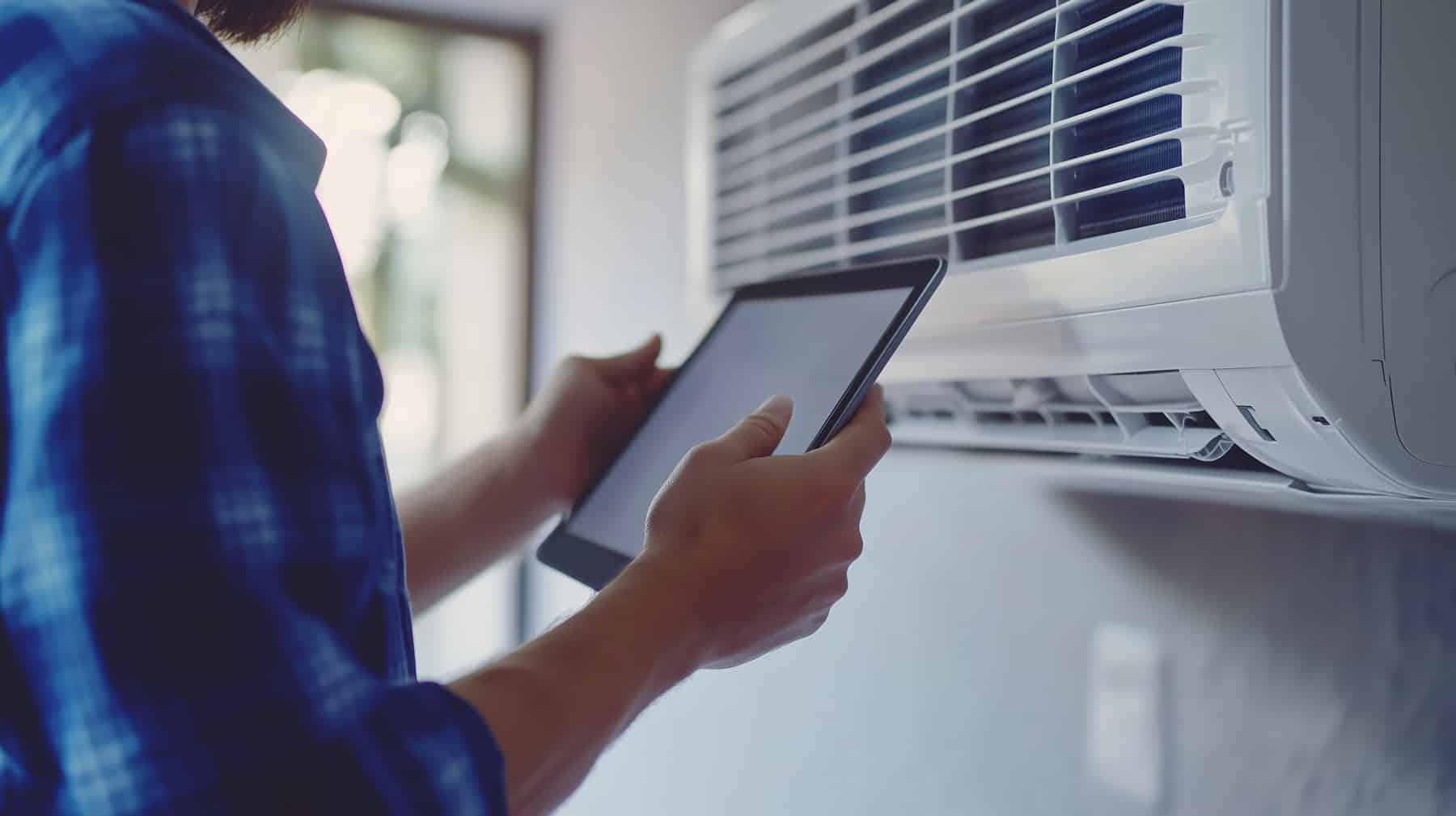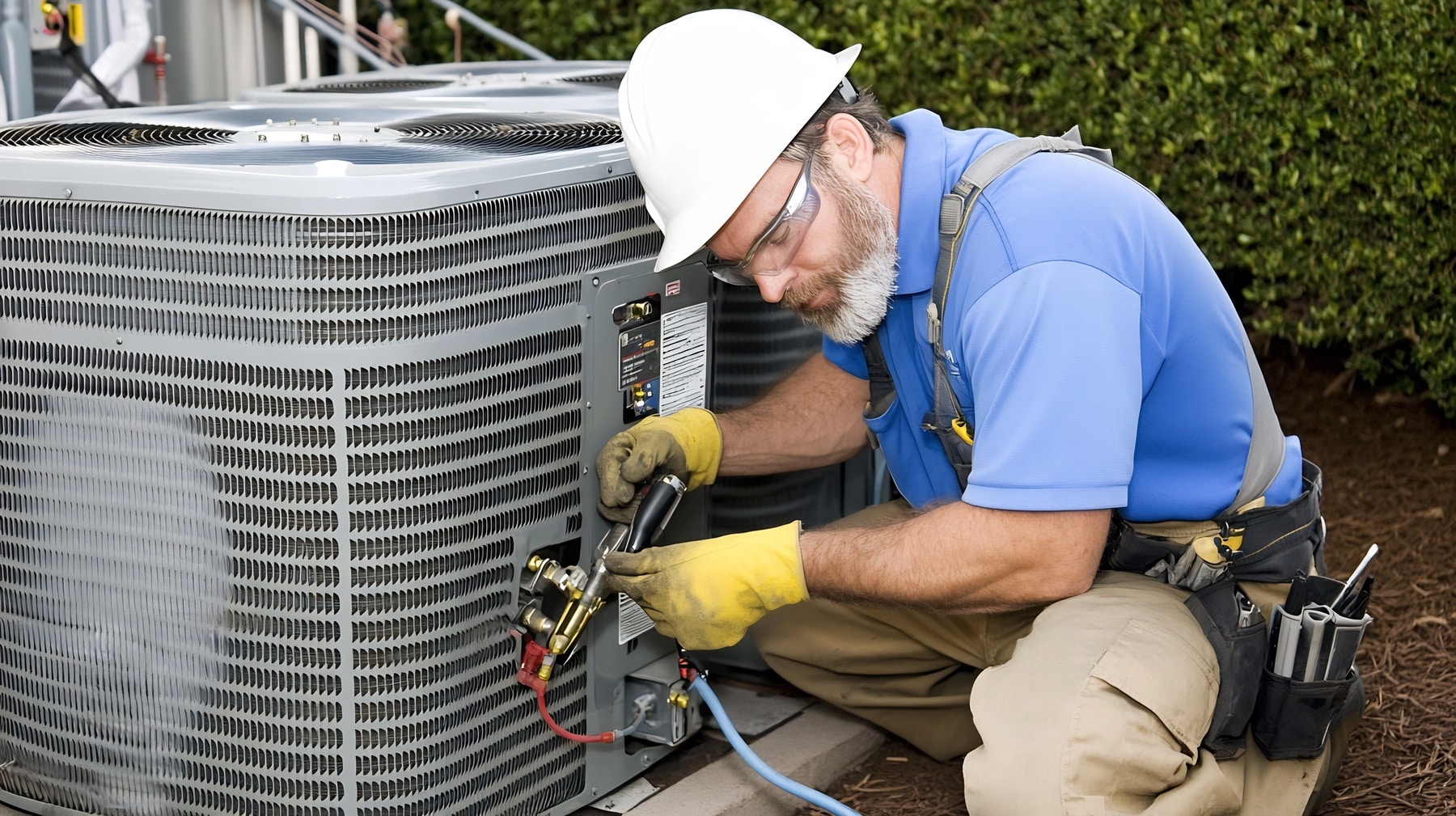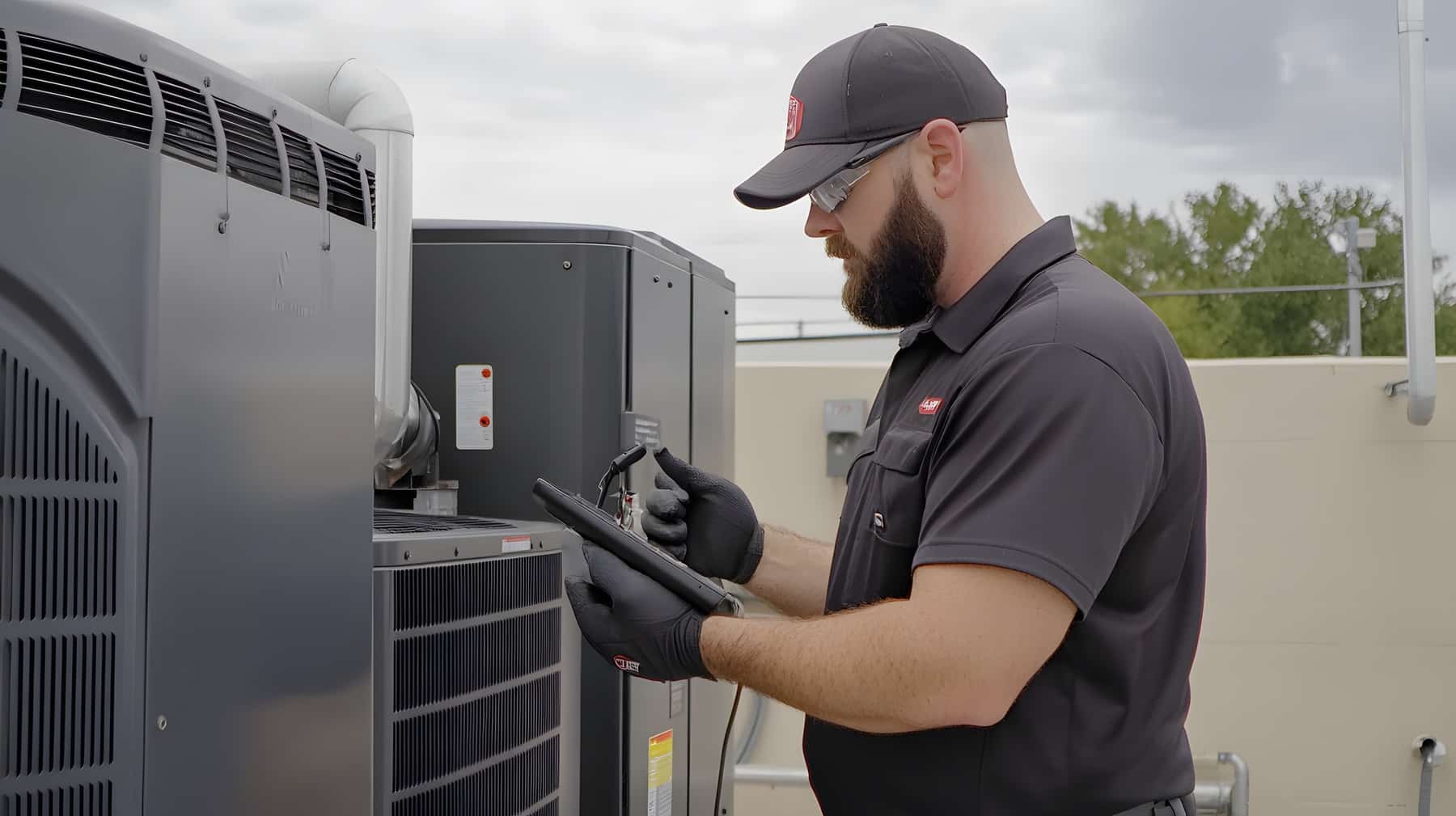HVAC systems play a pivotal role in maintaining comfort and ensuring efficient energy use in commercial buildings. The performance of these systems can directly impact the building’s energy costs, occupant comfort, and overall environmental footprint. Optimizing HVAC systems, particularly in office buildings and factories, involves a range of strategies, from regular maintenance to advanced technology integration. Understanding how to effectively monitor airflow, environmental variables, and system performance can lead to significant improvements in energy efficiency and long-term savings.
Regular Maintenance and System Inspections
Maintaining HVAC systems through regular inspections is crucial for keeping them running efficiently. This includes checking air filters, cleaning ducts, and ensuring that all components are functioning properly. Over time, dirt and debris can clog air filters, reducing airflow and causing the system to work harder than necessary. Regular cleaning of the coils and replacing the filters can help to maintain good air quality while improving the system’s efficiency. For commercial buildings, a preventive maintenance schedule should be established to ensure that HVAC systems are always in optimal working condition. Scheduling inspections at regular intervals can prevent small issues from becoming large, costly problems.

Energy-Efficient Upgrades
Investing in energy-efficient components can drastically reduce the energy consumption of HVAC systems. Upgrading to high-efficiency units, such as Energy Star-rated air conditioning units, can significantly reduce energy usage while maintaining a comfortable environment. Additionally, modern systems often come with advanced features like variable speed motors, which adjust airflow based on demand, leading to more precise temperature control and energy savings. By integrating energy-efficient technology into the HVAC system, businesses can lower their operational costs while simultaneously contributing to environmental sustainability. These upgrades might require initial investment, but the long-term savings on energy bills can quickly justify the expense.
Monitoring Airflow and Environmental Variables
Efficient airflow management is a fundamental aspect of HVAC system optimization. Ensuring that air flows freely through ducts and vents helps prevent the system from overworking, which can lead to higher energy consumption. A key technology in this regard is air velocity sensors, which monitor airflow levels throughout the building. By integrating these sensors into the HVAC system, facility managers can gain real-time insights into the system’s performance and make necessary adjustments to improve efficiency. Airflow sensors provide valuable data that allows for precision control over ventilation systems, ensuring that no energy is wasted by over-ventilating or under-ventilating spaces. By adjusting fan speeds and controlling the ventilation system in response to sensor readings, building managers can optimize energy use without sacrificing comfort.
Enhancing Insulation and Sealing
A significant amount of energy can be lost through poorly insulated buildings or air leaks around windows and doors. Improving insulation and sealing around these areas can reduce the workload of the HVAC system, as it won’t have to work as hard to maintain the desired temperature. In addition to energy savings, better insulation helps in maintaining more consistent indoor temperatures, which can improve overall comfort. It is important to periodically inspect the insulation in the walls, roof, and floors of commercial buildings. If there are gaps or areas where insulation has deteriorated, this should be addressed promptly to ensure the HVAC system can operate at its highest efficiency.
Best Practices for Optimizing HVAC System Performance
When it comes to improving the performance of HVAC systems, several best practices can make a significant difference:
- Regularly check and replace air filters
- Schedule annual system inspections to identify potential issues
- Upgrade to energy-efficient HVAC components
- Install smart thermostats and automation systems
- Seal gaps and improve insulation to minimize energy loss
- Educate employees and occupants on energy-saving behaviors, such as closing doors and windows when the system is on
By adopting these best practices, businesses can enhance the performance of their HVAC systems, reducing energy consumption, lowering costs, and ensuring a comfortable working environment.
Expert Interview on HVAC Optimization
To gain deeper insights into optimizing HVAC systems, we spoke with Chad Reagal, an HVAC expert with over 20 years of experience in commercial building management. John has worked on several projects involving energy-efficient HVAC systems and regularly advises businesses on improving their building’s environmental controls.
Q: How important is it to regularly maintain HVAC systems in commercial buildings?
“Regular maintenance is essential. Small problems like clogged filters can reduce the efficiency of the entire system, leading to higher energy consumption. Scheduled inspections ensure that potential issues are caught early, before they become expensive repairs.”
Q: What are the biggest energy savings tips for commercial buildings?
“Investing in energy-efficient units and using smart controls can save a significant amount of energy. Automating the system to adjust based on occupancy is one of the most effective strategies.”
Q: Can the use of air velocity sensors really make a difference in energy efficiency?
“Absolutely. By continuously monitoring airflow, these sensors allow for precise control of the HVAC system. They help avoid over-ventilation, which can waste energy, and they ensure that air distribution is optimized.”
Q: Are there any technologies that are particularly helpful for larger office buildings?
“Building automation systems (BAS) are invaluable in larger buildings. They can integrate data from multiple sources, like smart thermostats and sensors, to optimize overall energy use.”
Q: How can businesses identify if their HVAC system needs an upgrade?
“If you notice higher energy bills, inconsistent temperatures, or frequent breakdowns, it’s time to assess the system. An energy audit can help identify areas for improvement.”
Q: What role does employee behavior play in optimizing HVAC system performance?
“Educating employees to be mindful of HVAC usage—like turning off lights or closing doors—can have a substantial impact. A collaborative approach between building management and employees is key.”
Q: What’s one key piece of advice for businesses looking to improve HVAC performance?
“Don’t wait until something breaks. Proactive upgrades and regular maintenance are crucial in keeping your HVAC system running efficiently.”
Thank you, Chad, for sharing your expertise with us!

Boosting Efficiency and Comfort for the Long-Term
Improving the performance of HVAC systems in commercial buildings requires a combination of strategies, from routine maintenance and system upgrades to smart technologies and energy-efficient practices. By focusing on airflow management, insulating buildings properly, and leveraging advanced tools like air velocity sensors, businesses can significantly reduce energy consumption and lower operational costs. With expert insights and a commitment to optimization, achieving a balance of comfort and efficiency is entirely within reach.
image sources:
Felippe Lopes – stock.adobe.com
fotofabrika – stock.adobe.com
pkproject – stock.adobe.com

